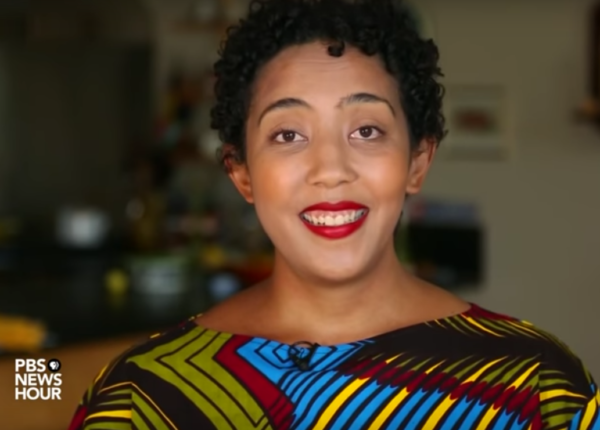Some of you may remember Namwali Serpell as the 2015 winner of the Caine Prize for African Writing. She teaches American literature at the University of California, Berkeley. In 2o14, her second book Seven Modes of Uncertainty was published by Harvard University Press.
Last week, a video of her sharing her experience as an outsider was posted on Facebook. The video is part of the Brief But Spectacular series produced by the US media outlet PBS.
Serpell is a mixed-race Zambian national and resident alien of the US. Having these different identities is great, but it also means that she often finds herself inhabiting the position of an outsider. In America, she stands out. In Zambia, she doesn’t entirely fit in. In the video, she talks about growing up and feeling a little out of place. But she also talks about being able to make her position as an outsider work for her.
The video is inspiring and reminds us of what we love about Serpell’s thinking and her work.
Here is the video. Watch it!
We included the full transcript of the video for those who would rather read than watch.
There are all these different terms for what an immigrant is in America when you have the permission to stay. There’s permanent resident, there’s resident alien. Immigration officials are really funny with me. Because they look at my permanent resident card, and I’m always very anxious about this when I’m at the – at the– Will they let me back in? Can I still be here?
I teach American Literature, and I start all of my courses by saying, “You might be wondering why a Zambian citizen and a resident alien of the United States is teaching you the history of American literature. But who better than an outsider to teach you about American Literature? All of the great literature of the US is told through the story of an outsider. Nick Carraway in ‘Gatsby,’ or Humbert Humbert in, ‘Lolita.’ Being on the outside, or being an alien is the condition of being American. And it’s a way to see the country from within, but also with a different perspective.”
I remember when my parents told me we were moving to The States. My sisters and I were really excited. For me, at age 8, it was a pretty intense shift. And I had kids kinda making fun of me, making fun of my hair, making fun of my accent.
I remember very specifically a kid asking me in the cafeteria in 5th grade, “What are you?” Not, “Who are you?” And not, “What race are you?” But, “What are you?” And what she meant was, “Are you black or white?” I asked my dad, my white father who’s a psychologist. He said, “You’re a citizen of the world, you’re a human.” And that answer was very unsatisfactory.
It was only in college that I really started to say, “I’m black.” Because in America, I’m black, and that’s how I’m recognized. I went back for a year to Zambia during high school, which was very difficult. Everyone was like, “Why do you wear your hair curly and natural?” They didn’t like the punk rock t-shirts I was wearing, or the big sweats and sneaks. I thought I was a skater chick.
People often want to say, “You’re African.” And I’m like, “Africa’s a huge continent. It’s not a country.” I feel Zambian, and then I feel American. Those are my identities, even though technically I’m an alien in this country. And when I go back to Zambia, I don’t exactly fit in there either.
And I realized that I could use this to my advantage. That you can actually leverage being an outsider, in order to be the most unique and be the biggest voice in the room, and bring a new perspective to things that everybody else takes for granted.
My name is Namwali Serpell, and this is my brief but spectacular take on being an alien.









COMMENTS -
Reader Interactions